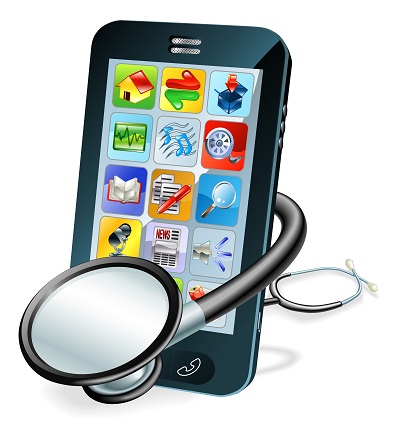I believe so passionately that health apps can work – especially when desired behavior change is paired with consciousness – that I and co-founders have developed a behavioral health mobile app. (If interested, here’s more information and how to access it.)
 My belief is not intuition-based. In 2010, when we first started developing and founding our app on evidence-based practices and treatments, Margaret Morris of Intel was already at the forefront of pairing personal phones with personal change. Three years later (2013), research abounds on the effectiveness of mobile health technology for behavior change.
My belief is not intuition-based. In 2010, when we first started developing and founding our app on evidence-based practices and treatments, Margaret Morris of Intel was already at the forefront of pairing personal phones with personal change. Three years later (2013), research abounds on the effectiveness of mobile health technology for behavior change.
I am delighted that our proposal was accepted by the Virginia Counselors Association and I will be presenting An App for That? What Counselors Need to Know about the Latest Research on mHealth for Mental Health at a round table discussion at the Annual Convention at The Homestead in Hot Springs, Virginia, November 7-9, 2013.
Session Synopsis
“It’s the relationship that heals.” Historically, therapeutic relationships have been created one-to-one, in-person, at a specific time and location. Mobile health technology – mHealth – promises the delivery of services to many, anytime, anywhere. Learn 1) what research shows about the efficacy of mHealth for mental illness and 2) implications for counselors.
Session Abstract
“It’s the relationship that heals,” we learn from Irvin Yalom and others. That therapeutic relationship has historically been created one-to-one, in-person, at a specific time and location. Mobile health technology – mHealth – offers the promise of delivering mental health services to the many, anytime, anywhere.
The majority of Americans own smartphones. Affordable mobile devices with unlimited data plans and no contract are readily available off department store racks; smartphone use is expanding among all socioeconomic levels. According to Brian S. Hall, writing for ReadWrite (May 17, 2013), “The Digital Divide has now been bridged by smartphones – the most advanced personal computing devices ever. While personal computers were disproportionately used by the rich, the white and the male, smartphones are more likely to be used by Blacks and Hispanics than Whites, and by girls as equally as boys.” Regardless of the populations they serve, counselors will find that their patients and clients have, or will soon have, smartphones.
With the mandate for “evidence-based practices,” EBPs, (also termed “evidence-based treatments, EBTs), and “health outcomes” for both individuals and populations, counselors are increasingly required to express the art and science of counseling primarily as science with measurable results.
Given the prevalence of smartphones and the demands of managed care for the use of cost-effective, measurable health outcomes, questions abound. Can counselors leverage mobile technology to 1) deliver additional, cost-effective services to their patients and clients beyond the one-on-one session, 2) meet their personal professional standards for offering research-backed treatments to their clients, and 3) supplement the documentation of EBPs/EBTs to receive reimbursement from the health care industry for services provided?
To answer whether or not mobile technology is an opportunity for counselors in these areas, what does the research show us about the effectiveness of mobile technology treatments for mental illness?
The health research process – proposal writing, grant application writing, grant receipt, Institutional Review Board application writing and approval, doing the research itself, then writing a report on the results – is snail-like compared to the warp speed of development in the mobile industry. Journals are just now publishing research only a few years old examining the efficacy of personal digital assistants (PDAs) and “computer-assisted” interventions.
To move research to application in the field as quickly as possible, researchers are hurriedly conducting meta analyses of past research on interventions involving mobile technology. Many such articles offer the standard conclusion “more research is needed” but important meta analyses, particularly in behavior change, are showing an exciting and startling result: almost any mobile technology treatment is better than no treatment. Interestingly, an exception is smoking cessation.
The purpose of this presentation is to 1) report findings from the very latest meta analyses on the efficacy of mobile technology interventions for mental illness and 2) posit potential ways counselors might embrace the use of mobile technologies to support and enhance their life’s work.
What does the research show?
I will be studying the very latest meta analyses on the efficacy of mobile technology interventions for mental health and behavior change in order to prepare as close to an up-to-the-day-before report for the Virginia Counselors Association as possible.
If you’re interested in following developments in my literature review, I’ll use at least two general categories and/or tags to help you find them, “mHealth” and “mobile health,” plus the specific topic, for example, “depression,” “anxiety,” “addictions,” “eating disorders,” and “PTSD.”
I’ll distill my findings to present in a handout to discuss at the round table session and will share that report as well.
